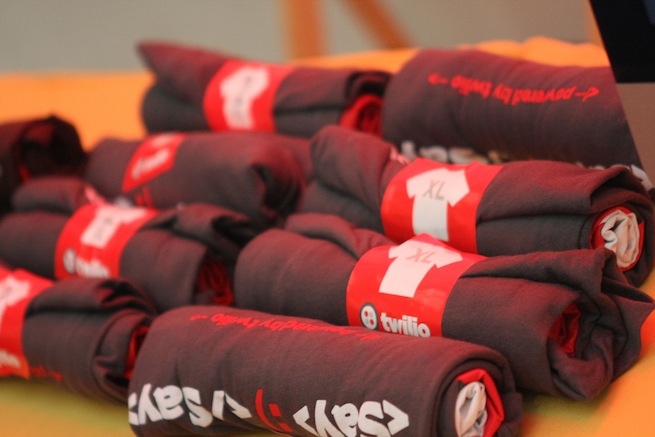Working at a startup is not a typical 9-5 — it’s a lifestyle. If the following resonates with you, then there’s a high probability that you work at a startup … or wish you did.
- You can’t do anything without wondering if it was user-tested. When ordering from an unnecessarily complicated menu, you make a snide comment about it not being tested on users. The consoles for keeping score when bowling and playing songs at karaoke leaves your heart throbbing for the user testing that could have been. You want to stop and do guerrilla improvements on all machines. Don’t even get you started on the vending machine!
- You calendar everything and everyone. When your mom wants to talk to you on the phone, you ask her to schedule some time on your Google calendar. When you want to make sure your roommates are all around to help clean the house on a Sunday afternoon, you block the time on their calendar. If something doesn’t make it to your calendar, it just won’t get done.
- You have an app for that. Your friends are still talking about Uber Cab, but you know about Uber’s newer, cheaper younger sibling. You downloaded the app for the Curry Up Now food truck so that you didn’t have to wait in the long line for your dosa. Oh, did I mention that you downloaded the app while waiting in line and got a lot of satisfaction from cutting the queue when your order was called?
- You have a weekly board game night. Settlers of Catan, Puerto Rico, Dominion, Resistance, oh my! Going out is cool and all, but really all you want to do is drink beer and play board games. (Bananagrams is probably too literary for you and World of Warcraft was so five years ago.)
- You climb at Mission Cliffs at least once a week. You’ve been known to pitch your best startup ideas while dangling from a crimpy hold. You only climb in t-shirts from Google, Evernote or Twilio.
- You visit TechCrunch, Mashable, and VentureBeat’s websites multiple times a day. You’re the first to know when a new startup has launched, raised funding, or been acquired. But you know embarrassingly little about the primary election or current affairs in Myanmar. You heard about the State of the Union address on Twitter and you found out who Jeremy Lin was via your friends’ Facebook posts.
- You use tech words in normal conversation and non-techies look at you like you’re from cyberspace. When you are missing a kitchen utensil, you come up with a clever “hack” or “workaround.” If you’re giving a friend from out of town a tour of your neighborhood (probably the Mission), you’re “onboarding” them.
- There are tons of great happy hours near your office, but you’ve never been to one. You love to tell recruits about all the happening bars nearby, but the reality is that everyone works well past the outer limit of happy hour.
- Granola bars are a food group. Clif bars, Nutrigrain bars, and Quaker Oats granola bars are all discrete foods within the group. These bars all come from the “fully stocked pantry” that is advertised on your startup’s job page.
- Your friends at Google have it so easy! They don’t have to buy Subway sandwiches for lunch and their micro-kitchens are stocked with Tcho chocolate. They can attend yoga classes and go on runs anytime during the day. But you wouldn’t trade places with them for anything. They’re just a cog in a 30,000-person machine and you’re changing the world.
Julia Plevin is a writer and blogger who recently returned to the United States after managing a magazine in Hanoi, Vietnam. She now works at a stealth startup in San Francisco. She’s posting occasional columns on VentureBeat about her experiences.
Photo credit: Twilio
Previous Startup and the City columns:
- A great moment in history
- A startup vocabulary lesson
- Lessons from landing my first startup job
- View from the other side of the hiring process
- Fake it until you make it
VentureBeat's mission is to be a digital town square for technical decision-makers to gain knowledge about transformative enterprise technology and transact. Learn More

